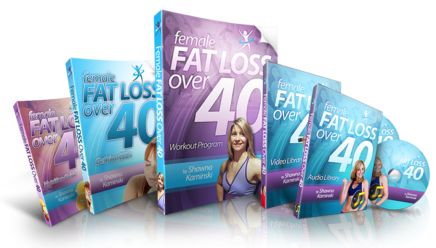21
Jan 10
Training with a heart rate monitor is a great way to monitor your fitness level. While it’s comforting to know that your heart is actually beating, you need to know more than this to effectively plan your workout to increase your fitness level and fat loss results.
To begin, you’ll need to know your maximum heart rate. One way to determine this is to use this formula:
220 – Your age = your maximum heart rate (mhr)
There are five training zones that you should be aware of:
- Comfort Zone 50-60% – This is the zone in which you get healthier, but not more fit — that is, it won’t increase your endurance or strength but it will increase some aspects of health.
- Recovery Zone 60-70% – All active recovery should be done at a maximum of 70% mhr. While still a relatively low level of effort, this zone starts training your body to increase the rate of fat released from the cells to the muscles for fuel. Training within this zone develops basic endurance and aerobic capacity. At one time, many thought that this was the best zone in which to train for fat loss because up to 85 % of the total calories burned in this zone are fat calories. (Recent studies show that interval training that incorporates higher intensity training is more effective for fat burning. More on this later.)
- Aerobic Zone 70-80% – Training in this zone will develop your cardiovascular system. The body’s ability to transport oxygen to and carbon dioxide away from the working muscles can be developed and improved. Fats and carbohydrates are metabolized at about a 50-50 rate which means both are burning at the same ratio.
- Anaerobic Zone 80-90% – This is where you “feel the burn.” Your heart cannot pump enough blood and oxygen to supply your muscles. In this case, your muscles begin working ‘anaerobically’ or without oxygen. The main energy source is glycogen from muscles and fat utilization is reduced greatly. A by-product of this process is lactic acid. You have a limited amount of time that you can train in this anaerobic zone but with training you will be able to sustain this heart rate and training stage for longer periods.
- Maximum or Redline Zone 90-100% – This zone is best for interval training and only the very fit are able to train in this zone for short periods. Many avoid this zone since it is difficult and there is an increased potential for injury. With increased fitness levels, you can get into and train in this zone for longer periods as well.
What’s my best bet for fat burning then?
Let’s look at an example: if you are 40 years old, your maximum heart rate is 180 beats per minute. Your ‘optimal fat burning’ heart rate would be 60-70% or between 108-126 beats per minute. As it turns out, this lower intensity heart rate zone is actually less effective at burning fat. Studies show that your best bet for fat burning is to raise the intensity in training. This is because while you burn 85% of fuel from fat at lower intensities, you actually burn more total calories when you cycle from lower to higher intensities of exercise. As well, you will raise your metabolism such that with the ‘after burn’ of an intense workout you will continue to burn more calories for some time after your training session is over.
Try to maintain your heart rate at about 60-70% of your mhr and then increase your intensity for short bursts up to 80-90% of your mhr. Our 40 year old would cycle from between 108-126 bpm (beats per minute) up to between144-162 bpm. The more fit you become; you can actually work at longer and longer periods at higher heart rate levels, even getting close to 100% of your mhr.
You can actually decrease your training time with this increase in intensity. Many people will mistakenly get on a treadmill and plod along for 30 minutes at about 50-60% of their mhr. Conversely, if you do an interval session of cycling from 60% to 80% of your mhr, you can get a more effective fat burning and cardiovascular workout in 15-20 minutes.
Incoming fat loss search terms:
- fat burning heart rate for women
- heart rate zones for women
- max heart rate for 31 year old female
- heart rate training zones for women
- fat burn heart rate for women
- heart rate for 31 year old female
- inurl:/videos/most-liked/
- max heart rate for 31 year old
- female fat burning heart rate
- female heart rate zones




 My passion is teaching people how to work fitness into their daily lifestyle in order to improve their quality of life. Let’s work together to help you reach your fitness goals!
My passion is teaching people how to work fitness into their daily lifestyle in order to improve their quality of life. Let’s work together to help you reach your fitness goals!
Thanks Shawna! I have a heart rate monitor kicking around but never fully understood how to use it to get the most out of my workouts.
jUaDXw Excellent article, I will take note. Many thanks for the story!
I read that studies suggests a higher protein diet may prevent a number of diseases including osteoporosis, diabetes and heart disease. Do you think that’s true?